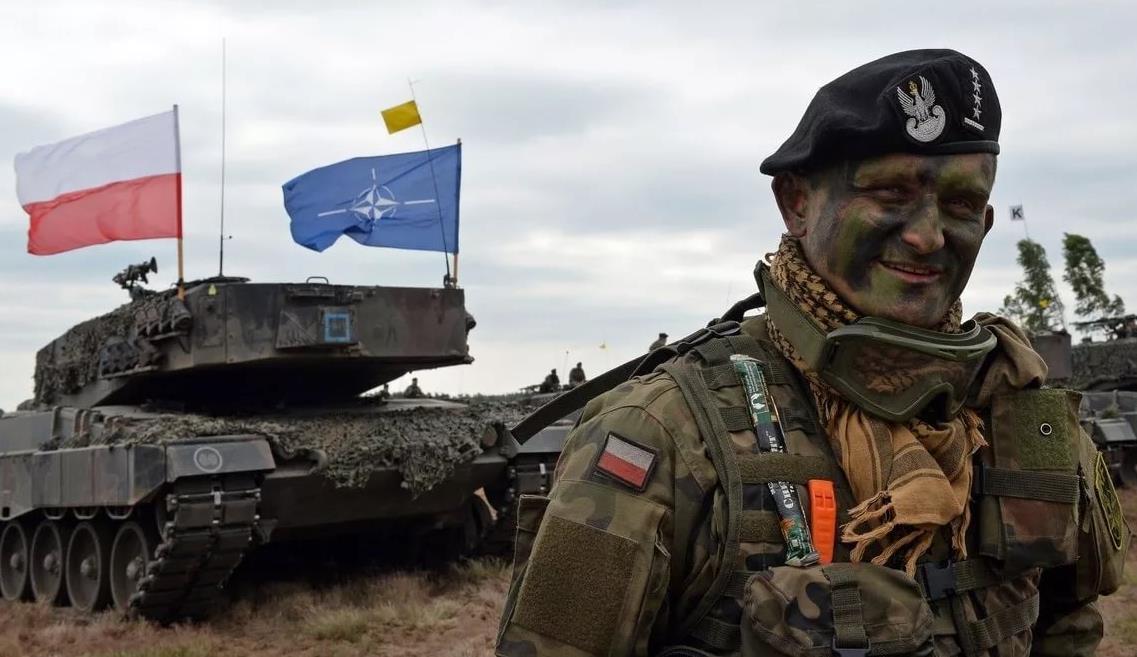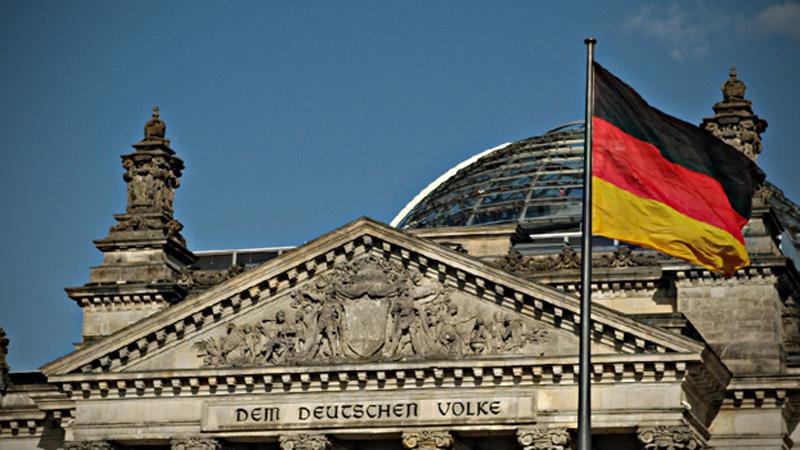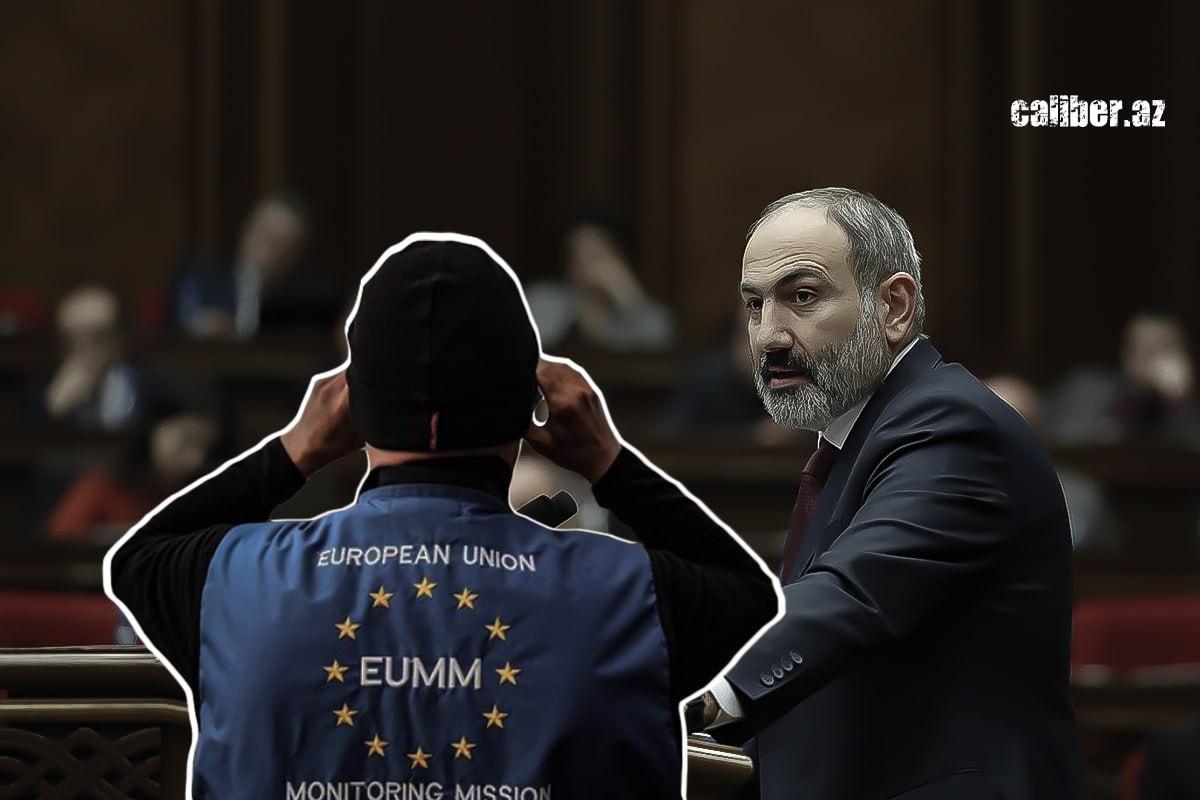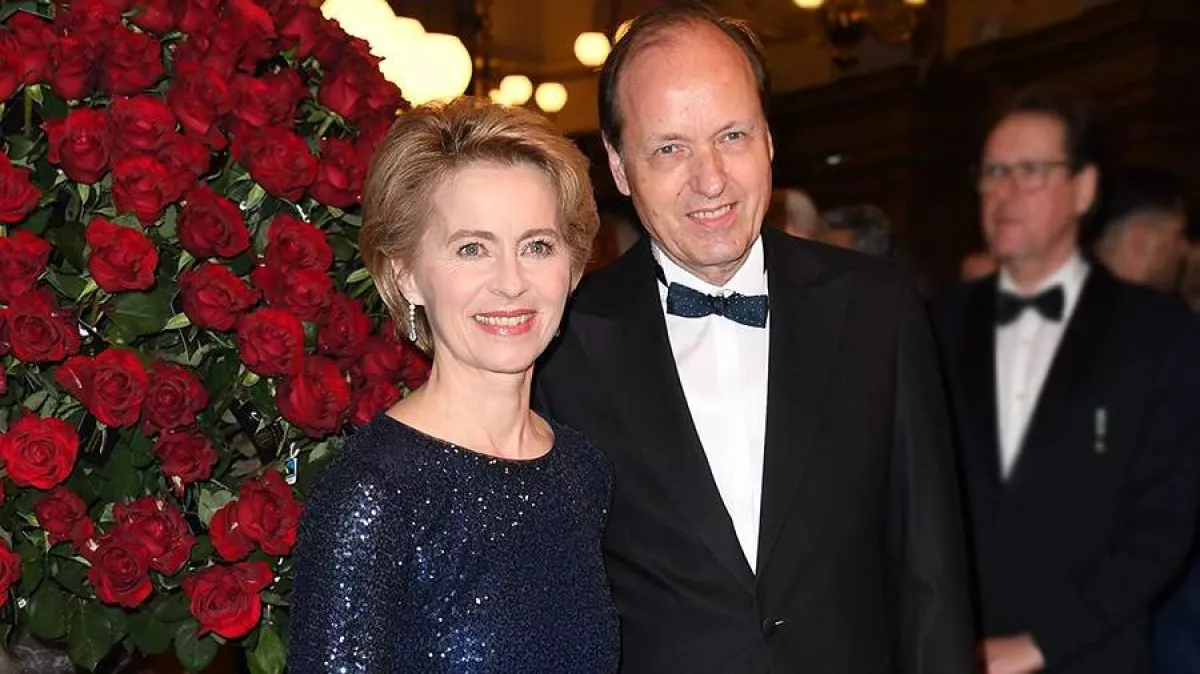Poland leads EU militarisation push A power play amid Europe’s uncertainty
From the start of the new year, Poland will take over the presidency of the European Union. The country advocates for a more aggressive stance in the EU's foreign and military policies. Recently, the influence of hardline factions in Brussels has grown considerably. These groups are primarily pushing for a stronger confrontation with Moscow — not just in Eastern Europe, but also in the South Caucasus, Central Asia, and beyond. In Yerevan, there are clear hopes that, under the guise of "fighting Russia," they can pull the EU into their revanchist ambitions.
Dizzying success
Poland assumes the EU presidency for six months at a crucial moment in the modern history of the collective West. On January 20, Donald Trump will return to the U.S. presidency, having threatened the EU with punitive tariffs on trade and cuts to aid for Ukraine, shifting the burden onto the weakening EU. Poland emphasises its close ties with the U.S. and is unlikely to oppose Trump’s demands, which include a sharp increase in the EU’s purchase of American gas and oil. Failure to comply will result in crushing tariffs on European goods. For Poland, this is not an issue, as the brunt of the damage will fall on Germany’s struggling industries, which are also Poland's main competitors in both the EU and NATO.
Poland is not even attempting to compete with Germany in the economic, industrial, or technological sectors, fully aware that its chances are slim. Instead, it has long focused on security issues (primarily the confrontation with Russia) as the main pillar of its policy within the EU, NATO, and the broader Western alliance. In this regard, Poland is far ahead of Germany, whose territory still hosts occupying forces (renamed allied troops) and which still carries the stigma of being the instigators of two world wars.
For a long time, Germany invested very little in military matters. Even now, Poland and the Baltic states can more convincingly assert their special status in Western structures, citing their shared border with Russia (and Belarus, which the West has been trying to push Russia into annexing for years). It is no surprise, then, that the priority of Poland’s EU presidency has been declared as "security in all dimensions" — a diplomatic euphemism for confronting Russia along the full perimeter of its borders.

But there is another point — the Polish presidency is supported by the powerful momentum of certain events this autumn. In December, the so-called "EU government" began its work, in which key positions on military and foreign policy were taken by Poland's closest allies — the radically anti-Russian politicians from Eastern Europe. Their ally is also the President of the European Commission, Ursula von der Leyen, who made a dramatic call for militarisation. This sounded grotesque coming from a politician who, during her six years as Germany’s Defence Minister (from 2013), was unable to bring order to a much smaller army — the Bundeswehr — in a much calmer environment. Considering the disastrous results of the German military during the battles with the Taliban under Ursula’s leadership, calls for militarisation to fight Russia seem, to put it mildly, emotional outbursts — though this does not diminish their danger. Quite the opposite, in fact, since it shows a lack of understanding that one must take responsibility for their words.
Korean version
In the military sphere, Warsaw, in its role as chair, wants to focus on "defending the EU’s borders." The Poles can set an example — they have been building fortifications along their eastern borders for years, even destroying protected forests. Among other initiatives are information and cybersecurity, as well as the expansion of the EU's military-industrial complex. Nothing particularly sensational: Poland simply wants to increase military spending — in this way, as a "frontline state," it can claim additional funds from Brussels. The bulk of the increase in military spending in the EU will come from the "old Europe" countries, like Germany. They will provide the funds, which will then be passed on to the "new Europeans" in the east.

There is another issue that is regularly discussed behind closed doors and is likely to be addressed during Warsaw's presidency — the deployment of a military contingent from EU countries to Ukraine. On December 18, Polish President Andrzej Duda openly stated that sending Polish troops there is "a topic for discussion." Naturally, some commentators dismissed his words, claiming that Polish Prime Minister Donald Tusk had rejected such a move. However, Duda is clearly trying to position himself and his right-wing conservative party as key allies of the future occupant of the White House, Donald Trump. While Tusk and his liberal faction may have narrowly won the election last year, they belong to the weakening Euro-Atlantic liberal elite. In short, Duda did not voice a marginal opinion — and he did so in the context of a mini-NATO summit.
Moreover, several other developments suggest that this viewpoint is becoming mainstream among the leaders of Europe’s largest nations. Recently, French President Emmanuel Macron discussed the deployment of foreign military contingents to Ukraine with his Ukrainian counterpart, Volodymyr Zelenskyy. Earlier this month, the EU's High Representative for Foreign Affairs and Security Policy, Kaja Kallas, also mentioned the possibility of sending EU forces to Ukraine.
What is even more significant, however, is that the defence ministers of Italy and Germany, Guido Crosetto and Boris Pistorius, respectively, have expressed readiness to deploy their armies to Ukraine. On December 18, Reuters reported that EU structures are planning to send between 40,000 and 100,000 troops from member states and even identified the core coalition: Poland, France, Germany, Italy, and notably the United Kingdom, which, as is well known, is no longer part of the EU.
These discussions are often framed in the language of peacekeeping and ceasefire initiatives. However, this is far from a simple attempt to end the conflict. When Polish President Andrzej Duda spoke about sending Polish troops to Ukraine, he immediately added a stark imperative: “Russia cannot win this war.” This makes it clear that the goal is not limited to deploying passive peacekeeping forces but rather something far more ambitious — direct involvement in the war.
A relevant comparison is the "Korean scenario." During the Korean War (1950–53), North and South Korea fought fiercely until the North began gaining the upper hand. At that point, "UN forces" intervened, ostensibly to maintain peace but, in reality, comprising primarily U.S. troops and their allies. These forces crushed the North Korean army, though Chinese intervention prolonged the conflict. The war resulted in devastating consequences: an estimated two to three million civilian deaths, entire villages obliterated, and the creation of the oppressive North Korean regime as we know it today.
In other words, so-called peacekeeping forces can easily escalate into full-blown military engagement, with catastrophic consequences.
In essence, the EU is no longer debating whether to enter Ukraine but rather how to do so without U.S. involvement. This shift comes as Donald Trump signals his intent to shift the burden of confronting Russia onto European allies. On December 19, The Washington Post reported that the deployment of Western troops to Ukraine is being discussed, though without the formal use of NATO structures. In other words, the EU segment of NATO could potentially declare itself a separate entity under the EU’s banner.
This approach is purportedly designed to reduce the risk of global war while aligning with Trump’s demands. However, it is difficult to view such a strategy as responsible. Not only does it pose a significant risk to the cohesion of NATO itself, but a geopolitical chameleon like an “EU military alliance” still appears to Russia as part of the "collective West" rather than an independent actor. As a result, Moscow is likely to respond accordingly, further escalating tensions.
Pashinyan seeks a share of profits from EU militarization
Amid the EU’s current surge in military activity, spearheaded by Emmanuel Macron, Armenia's leadership has begun exploiting the idea of EU military presence on its territory. On December 19, Armenian Prime Minister Nikol Pashinyan proposed applying a peace treaty provision — which prohibits the deployment of foreign forces on the border — to its already demarcated segments. The implication was clear: a reference to the current EU "civilian" mission.
Given the already stalled delimitation process, accepting Pashinyan’s proposal would likely weaken Armenia’s motivation to complete it. Consider the context: the revanchists entrenched in Armenia’s state structures already oppose border delimitation, accusing Pashinyan of making mythical "concessions." Meanwhile, the pro-Western faction of Yerevan’s elite prioritizes rapprochement with the collective West at any cost and under any conditions.
Their ultimate goal? The establishment of Western military bases in Armenia. For now, however, a nominally civilian yet heavily security-focused EU mission would suffice. An undemarcated border provides a convenient pretext for expanding such a mission, precisely what this faction desires.
The issue of border delimitation is far from a priority for them — it doesn’t even make the top ten. Armenia has functioned without formal borders for 40 years, and even where borders were defined, they were guarded solely by Russian border troops.

The EU appears eager to exploit the dreams of Armenia’s elites. Despite cuts to the EU’s foreign policy budget, countries involved in escalating the Ukraine conflict — such as Germany and Poland — are sending additional personnel. This summer, Berlin made such commitments, followed by Warsaw in November, when President Andrzej Duda made a controversial visit to Yerevan, including a curious excursion to the nominal border with Azerbaijan. Unsurprisingly, the personnel deployed are not mere civilians; they often include military and intelligence operatives.
The EU mission’s ostensibly civilian facade increasingly reveals its military undertones. For example, in December, two "civilian" members of the EU mission in Armenia undertook a "patrol," as announced in a tweet. Their ranks were omitted, but investigations revealed them to be active German military diplomats: Lieutenant Colonel Andreas Sebald and his colleague from the Tbilisi office, Siegfried Steidle. Sebald is reportedly an officer in the German General Staff, while Steidle, a shadowy figure, has no public trace of his career — a hallmark of intelligence operatives required to avoid social media and maintain secrecy regarding promotions or awards.
This is the "civilian mission" Pashinyan hopes to leverage for his own agenda. Notably absent from this agenda are the swift normalization of relations between the region’s peoples or the restoration of historical unity across the South Caucasus. Instead, the mission serves as a tool for advancing narrower, more self-serving goals, sidelining genuine regional reconciliation.
New barrier, new revenues
Let’s return to the EU’s policies for the next six months. Poland’s elites aim to collaborate with Brussels’ liberal establishment while subtly shifting the narrative to align with their interests. At the heart of this strategy is Poland’s long-standing ambition to make Europe heed its warnings about the "perpetual pathological threat" posed by Russia.
For years, Polish and other Eastern European politicians’ claims about a "Russian-Belarusian military threat" or even alleged plans for a nuclear strike on Warsaw (circulated in the late 2000s) were largely dismissed as alarmist. Now, they point to current events as vindication of their foresight. However, what they overlook — or perhaps prefer not to acknowledge — is the role of a self-fulfilling prophecy in creating the very tensions they warned against.
Alternative perspectives, such as missed opportunities to avoid confrontation, remain off the table. For instance, Belarusian leader Alexander Lukashenko once openly proposed regional demilitarization in discussions with Lithuanian politicians, even including Russia’s Kaliningrad Oblast.
As Poland assumes the EU presidency, its economic vision reveals significant gaps, especially regarding critical issues like the looming U.S.-EU trade war threatened by Donald Trump. Despite the urgency of the matter, Warsaw offers no innovative solutions or strategies. Considering Poland’s historical willingness to acquiesce to virtually any U.S. demands, one might expect its leadership to advocate for nothing more than a softly worded capitulation.
Beyond trade tensions, Poland’s approach to the EU’s economic agenda seems more focused on "securitisation" than on restoring industrial competitiveness. The emphasis is on combating external adversaries rather than fostering internal resilience. For instance, Warsaw proposes creating a "pan-European system for screening foreign direct investments." Ostensibly aimed at preventing unwanted third parties—chiefly China—from acquiring stakes in critical sectors like semiconductor production and artificial intelligence technologies, this initiative raises questions about its necessity. As if national security and counter-intelligence agencies were not up to the task.
In these efforts, Warsaw is closely collaborating with European Commission President Ursula von der Leyen, who introduced this idea in her "economic security strategy" over a year ago. However, progress has stalled as Hungary, during its outgoing presidency, insisted on reducing the list of sectors whose transactions would be subject to scrutiny by the European Commission. Ursula rejected the compromise proposal put forward by Viktor Orbán, choosing instead to wait for the presidency to pass to the more flexible Warsaw, with its strong focus on security threats.

There’s no principle at play here, by the way. Creating such a system with Warsaw’s help allows for setting up a barrier to serious investors trying to enter the EU, with Ursula and her team sitting at the gate. Needless to say, one can easily guess why this is of interest to her. Of course, liberal Euro-Atlantic media prefer not to discuss this. Yet, Ursula has an interesting background in this regard.
Brussels has just made a massive effort to bury the largest corruption scandal in world history, when it was revealed that von der Leyen had secretly negotiated with the president of the pharmaceutical giant Pfizer for the EU to purchase over €35 billion worth of COVID-19 vaccines, a significant portion of which was later simply discarded! Then Ursula quickly erased the text messages through which the deal was made. Last week, it was revealed that she is ignoring attempts by the Belgian prosecutor's office to investigate the case, citing immunity. What’s even more intriguing is that Ursula’s husband has been closely involved with big business in the pharmaceutical sector for decades, which means the Pfizer deal may have several corruption-related aspects. But EU media show little interest in this story, with the scandal only gaining attention when it was picked up by The New York Times.
The conflict of interest involving Ursula's husband has already been discussed, such as in 2020, when it was revealed that her husband worked for a de facto American shell company—one that does nothing itself and exists virtually but attracts third-party financing and "outsources" drug development to other firms. At the time, it came to light that this "company" had been seeking hundreds of millions of EU funds to take a cut before hiring others to create medicines that would later be patented under this "start-up shell." Brussels fended off the criticism, claiming the company exists but hasn’t yet received any money! In the grand scheme, these scandals are just child’s play compared to the new corruption opportunities that would arise if Ursula, with Warsaw’s assistance, manages to set up the proposed barriers.
To sum up: Poland is focusing on security issues and increasing pressure on Russia, not only out of ideological considerations but also as a way for the Polish elite to enhance their status both within the EU and NATO, and in relations with the United States. Amid Germany’s weakening, Poland is positioning itself as the future military and political hegemon in the region. However, looking at this, one cannot shake the sense of haste and transience in Poland's successes. These achievements are not built on a solid economic foundation or a realistic strategy. This explains Poland's alliances with the entrenched liberal bureaucracy in Brussels and its attempts to enter the South Caucasus through the Armenian window, even though Azerbaijan has not closed its doors. Meanwhile, such a policy undermines both the EU’s economy and NATO’s effectiveness — the key components of Poland's "miracle," which relies on Brussels' financial support and the ability to lean on NATO.








